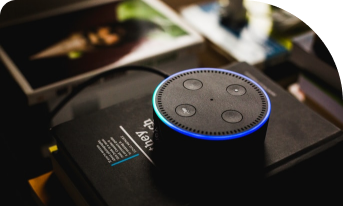Latest
Knowledge
is key with KYB
Lorem ipsum dolor sit amet, consectetur adipiscing elit, sed do eiusmod Lorem ipsum dolor


What if your building could talk? It would tell you when energy is being wasted, when the HVAC needs maintenance, when air quality drops, or when a safety system is down. That’s exactly what Know Your Building® enables—a real-time conversation between you and your building, powered by data. In this behind-the-scenes look, we unpack how […]
Read More >
When we talk about smart buildings, most people think of automation, energy efficiency, and futuristic tech. But one of the most powerful and often overlooked benefits of smart building technology is its impact on indoor air quality (IAQ). In a world where we spend nearly 90% of our time indoors, the air we breathe inside […]
Read More >
“Net Zero”—you’ve heard the term. It’s being discussed in boardrooms, government meetings, and sustainability reports across the globe. But beyond the buzz, Net Zero is becoming a real business priority—and sooner than you might expect. Whether you’re managing a commercial building, a hospital, a campus, or an industrial site, the question isn’t if you’ll need […]
Read More >
In the age of digital transformation, flashy tech headlines often steal the spotlight—but the true game-changer in modern infrastructure operates quietly in the background. Smart building data is the unsung hero that’s reshaping how facilities are managed, maintained, and optimized. From energy efficiency to occupant comfort and safety, it’s the data that does the heavy […]
Read More >
Why Buildings Must Get Smarter: Today’s buildings are no longer simple structures — they are dynamic ecosystems.Managing these complex operations efficiently while achieving sustainability targets requires a new kind of intelligence:Cloud-Native Building Management Systems (BMS). At Know Your Building®, we empower buildings to be smarter, greener, and more future-ready through cloud-native innovation. Why Cloud-Native BMS […]
Read More >Environmental Impact of Buildings: Key Facts As cities grow and climate challenges intensify, reducing environmental impact has become a core priority for real estate owners, businesses, and facility managers.Smart technologies like Cloud-Native Building Management Systems (BMS) and modern Access Control systems are playing a pivotal role in building greener, more responsible operations. At Know Your […]
Read More >
Lorem ipsum dolor sit amet, consectetur adipiscing elit, sed do eiusmod
Read More >
Lorem ipsum dolor sit amet, consectetur adipiscing elit, sed do eiusmod
Read More >
Lorem ipsum dolor sit amet, consectetur adipiscing elit, sed do eiusmod
Read More >
Lorem ipsum dolor sit amet, consectetur adipiscing elit, sed do eiusmod
Read More >
Lorem ipsum dolor sit amet, consectetur adipiscing elit, sed do eiusmod
Read More >
Lorem ipsum dolor sit amet, consectetur adipiscing elit, sed do eiusmod
Read More >
The Economic Times – Ms. Garima Bharadwaj, Co-founder, wins Times 40 under 40 award for real estate impact
Read More >
Exclusive Interview: Co-founder and CEO Gaurav Bali Shares Latest HVAC Trends with Construction Times
Read More >
Empowering the startup ecosystem in India through Qualcomm Design in India Challenge – 2022
Read More >
Lorem ipsum dolor sit amet, consectetur


Lorem ipsum dolor sit amet, consectetur



What if your building could talk?
It would tell you when energy is being wasted, when the HVAC needs maintenance, when air quality drops, or when a safety system is down. That’s exactly what Know Your Building® enables—a real-time conversation between you and your building, powered by data.
In this behind-the-scenes look, we unpack how the Know Your Building® platform works, what makes it different, and how it’s changing the game for building owners, facility managers, and tenants across sectors.
Know Your Building® is a wireless, cloud-native Building Management System (BMS) designed to help you monitor, manage, and optimize everything from HVAC to lighting, energy, water, fire safety, and indoor air quality—all in one place.
But beyond the interface lies a world of engineering, integration, and intelligent automation that makes buildings smarter, safer, and more sustainable.
We deploy a wide range of smart sensors throughout your building—temperature, humidity, CO₂, occupancy, energy meters, water flow, and more.
These devices feed real-time data into the system without the need for extensive rewiring or infrastructure overhaul.
All the sensor data is collected and stored securely in the cloud, making it accessible from anywhere, anytime.
Facility managers can monitor multiple buildings from a single dashboard, enabling centralized control for distributed portfolios.
Our analytics engine goes beyond dashboards. It learns from usage patterns, detects anomalies, and provides predictive insights that allow teams to take action before problems escalate.
Know Your Building® allows you to set intelligent rules:
This is how your building starts thinking and acting for itself—with your team in full control.
Whether you’re managing a hospital, school, office tower, warehouse, or shopping mall—Know Your Building® adapts to your needs.
Morning: Your dashboard alerts you to higher-than-usual overnight energy usage on the 5th floor. You investigate and discover the HVAC ran all night due to a schedule misconfiguration—now corrected.
Afternoon: The CO₂ sensor in a crowded conference room detects poor air quality. The system increases ventilation automatically to maintain comfort and health.
Evening: A pump in the fire system shows abnormal pressure. Maintenance gets an automated alert, and a potential safety issue is resolved before becoming critical.
All of this, without lifting a finger.
Behind every feature of Know Your Building® is a mission:
And we do it not with promises, but with data you can trust and tools your team can use.
Read More >
When we talk about smart buildings, most people think of automation, energy efficiency, and futuristic tech. But one of the most powerful and often overlooked benefits of smart building technology is its impact on indoor air quality (IAQ).
In a world where we spend nearly 90% of our time indoors, the air we breathe inside buildings can significantly affect our health, productivity, and well-being. Poor IAQ isn’t just uncomfortable—it’s a silent risk.
At Know Your Building®, we believe that smarter buildings should also mean healthier buildings. And it starts with data.
Indoor air can be up to 5 times more polluted than outdoor air due to factors like poor ventilation, building materials, cleaning chemicals, and occupant activity.
Poor IAQ can lead to:
In a post-pandemic world, IAQ is also a public health priority. Employers, facility managers, and building owners are now expected to maintain healthier indoor environments—and smart technology makes that possible.
Smart buildings are equipped with IoT sensors that continuously monitor key air quality metrics such as:
With this data, building managers can identify IAQ issues before they become health hazards.
Smart systems can adjust ventilation dynamically based on occupancy and air quality levels. This ensures:
A smart building can alert you when air filters are clogged, ducts need cleaning, or HVAC performance drops—preventing air quality degradation and extending system life.
Different areas of a building may require different ventilation settings. Smart systems allow for customized IAQ control in high-occupancy or sensitive zones (e.g., conference rooms, labs, hospitals).
At Know Your Building®, we integrate real-time IAQ monitoring with our wireless, cloud-based Building Management System (BMS) to give you full control and visibility.
With our platform, you can:
Investing in indoor air quality isn’t just about health—it also leads to:

“Net Zero”—you’ve heard the term. It’s being discussed in boardrooms, government meetings, and sustainability reports across the globe. But beyond the buzz, Net Zero is becoming a real business priority—and sooner than you might expect.
Whether you’re managing a commercial building, a hospital, a campus, or an industrial site, the question isn’t if you’ll need to prepare for Net Zero—it’s when.
So… Are you ready?
At Know Your Building®, we help buildings take the guesswork out of sustainability. And it all starts with data.
In simple terms, Net Zero means the total amount of greenhouse gases emitted is equal to the amount removed from the atmosphere. For buildings, this involves:
And it’s not just about saving the planet—it’s about future-proofing your building, meeting regulations, and cutting long-term costs.
Buildings are responsible for nearly 40% of global carbon emissions. That makes them a critical focus area for climate action. Regulations are tightening, tenants are demanding greener spaces, and investors are rewarding sustainable operations.
Governments around the world—including India’s push toward carbon neutrality by 2070—are rolling out policies that will make Net Zero a requirement, not a choice.
Without live data, it’s nearly impossible to optimize energy consumption. Smart meters and IoT sensors are essential tools.
Lighting, HVAC, and older equipment often consume more power than necessary. Smart building platforms can highlight inefficiencies.
Legacy systems limit visibility. A cloud-native BMS, like Know Your Building®, offers actionable insights anytime, anywhere.
You can’t reduce what you can’t measure. Emissions tracking and automated reporting are now key parts of ESG strategies.
Whether it’s solar, wind, or green power purchasing—Net Zero means moving away from fossil fuels. A smart energy strategy is critical.
At Know Your Building®, we empower you to monitor, analyze, and optimize your building’s performance through real-time data.
Our platform helps you:
With our wireless, cloud-native BMS, we make sustainability measurable—and achievable.
Getting to Net Zero isn’t about ticking boxes—it’s about rethinking how your building operates. It’s about turning insight into impact.
Buildings that act today won’t just be compliant—they’ll be competitive.
Read More >
a
What if your building could talk?
It would tell you when energy is being wasted, when the HVAC needs maintenance, when air quality drops, or when a safety system is down. That’s exactly what Know Your Building® enables—a real-time conversation between you and your building, powered by data.
In this behind-the-scenes look, we unpack how the Know Your Building® platform works, what makes it different, and how it’s changing the game for building owners, facility managers, and tenants across sectors.
Know Your Building® is a wireless, cloud-native Building Management System (BMS) designed to help you monitor, manage, and optimize everything from HVAC to lighting, energy, water, fire safety, and indoor air quality—all in one place.
But beyond the interface lies a world of engineering, integration, and intelligent automation that makes buildings smarter, safer, and more sustainable.
We deploy a wide range of smart sensors throughout your building—temperature, humidity, CO₂, occupancy, energy meters, water flow, and more.
These devices feed real-time data into the system without the need for extensive rewiring or infrastructure overhaul.
All the sensor data is collected and stored securely in the cloud, making it accessible from anywhere, anytime.
Facility managers can monitor multiple buildings from a single dashboard, enabling centralized control for distributed portfolios.
Our analytics engine goes beyond dashboards. It learns from usage patterns, detects anomalies, and provides predictive insights that allow teams to take action before problems escalate.
Know Your Building® allows you to set intelligent rules:
This is how your building starts thinking and acting for itself—with your team in full control.
Whether you’re managing a hospital, school, office tower, warehouse, or shopping mall—Know Your Building® adapts to your needs.
Morning: Your dashboard alerts you to higher-than-usual overnight energy usage on the 5th floor. You investigate and discover the HVAC ran all night due to a schedule misconfiguration—now corrected.
Afternoon: The CO₂ sensor in a crowded conference room detects poor air quality. The system increases ventilation automatically to maintain comfort and health.
Evening: A pump in the fire system shows abnormal pressure. Maintenance gets an automated alert, and a potential safety issue is resolved before becoming critical.
All of this, without lifting a finger.
Behind every feature of Know Your Building® is a mission:
And we do it not with promises, but with data you can trust and tools your team can use.
Read More >
